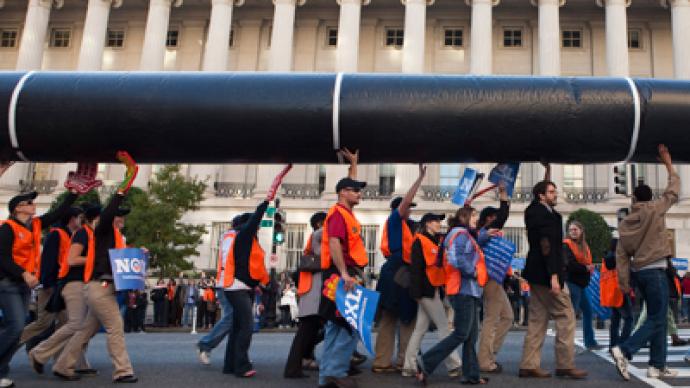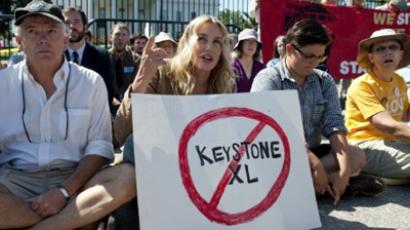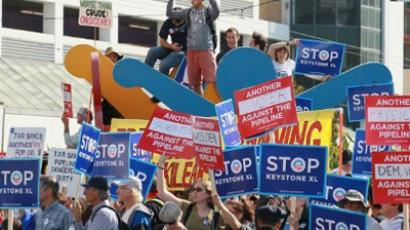US rejection of oil pipeline may re-shape oil markets

President Barack Obama’s rejection of the Keystone XL pipeline may undermine US energy security and force Canada to look for new markets.
“Canada is already the largest and most secure crude oil supplier to the United States. However, the rejection of the pipeline is seen by the Canadian Government as proof that it cannot depend on just the US for it crude exports,” says Esa Ramasamy, Editorial Director at Platts, the energy information company.Canadian Prime Minister Stephen Harper says he was “profoundly disappointed” by the decision. The 2700-kilometer pipeline was due to run from the oil sands of Alberta in Canada all the way to Texas, and would have cost 7 billion dollars to construct.Now, Canada may look to export more of its oil to energy-hungry Asian economies, particularly China.Obama did not reject the project outright, admitting that the refusal to give an environmental clearance to Keystone XL was largely the result of a tight approval deadline imposed on him by a hostile Congress.“The Keystone XL project has a high probability of being commissioned, the question is when it will happen.” says Ramasamy.TransCanada, the project owner, will now have to submit a totally new application for the pipeline to the US State Department, paving way for yet more environmental impact studies. Publically, it has stated that it hopes to complete the project by 2014, but investment bank FirstEnergy Capital says 2016 is a more realistic goal.But even if the pipeline is salvaged Ramasamy sees the decision as a missed opportunity.“The rejection of the project is clearly motivated by political factors, rather than economic, with the upcoming elections in the US in November 2012 playing a key role” he says. The majority of those who protested against the pipeline on environmental grounds are Democratic supporters, and Obama did not want to alienate them ahead of the presidential poll. Proponents of Keystone say he may have sacrificed tens of thousands of jobs and billions of dollars’ worth of investment for the sake of short-term popularity.














